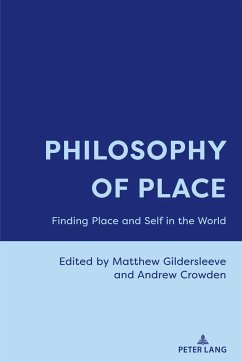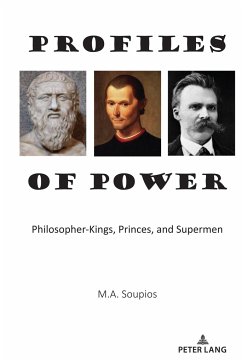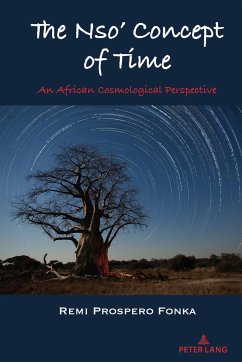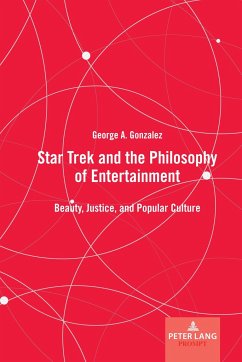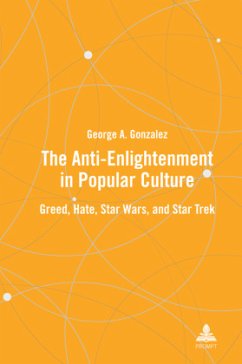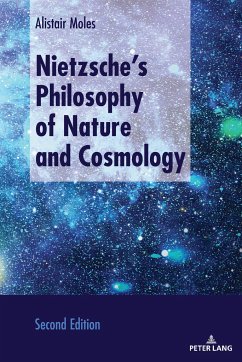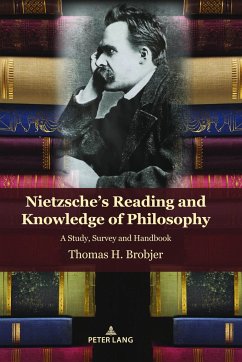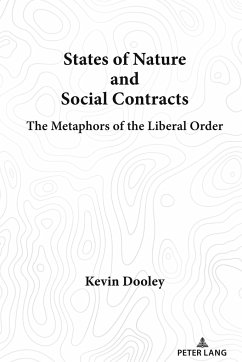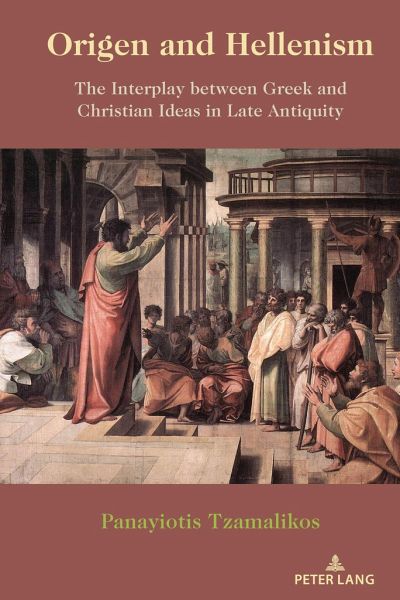
Origen and Hellenism
The Interplay between Greek and Christian Ideas in Late Antiquity
Versandkostenfrei!
Versandfertig in 6-10 Tagen
115,55 €
inkl. MwSt.
Weitere Ausgaben:

PAYBACK Punkte
0 °P sammeln!
This book elucidates and engages in critical discussion of the Greek philosophical background to the work of Origen, the great third-century scholar and theologian. The author, Professor Panayiotis Tzamalikos, has long argued that Origen was in many respects an anti-Platonist, and that the clauses in Origen's official anathematisation in AD 553 were based on misreadings by unschooled and fanatical drumbeaters. Tzamalikos has refuted those charges and demonstrated that they had nothing to do with Origen's real thought. Origen and Hellenism continues the argument by placing Origen's achievement ...
This book elucidates and engages in critical discussion of the Greek philosophical background to the work of Origen, the great third-century scholar and theologian. The author, Professor Panayiotis Tzamalikos, has long argued that Origen was in many respects an anti-Platonist, and that the clauses in Origen's official anathematisation in AD 553 were based on misreadings by unschooled and fanatical drumbeaters. Tzamalikos has refuted those charges and demonstrated that they had nothing to do with Origen's real thought. Origen and Hellenism continues the argument by placing Origen's achievement in its correct context: Origen may have forsaken his ancestral religion and converted to Christianity when he was advanced in years, but he implicitly made much use of his Greek intellectual inheritance in composing his ground-breaking theological work, which paved the way to Nicaea.
The author's thesis is that, in the quest to discover the real Origen, scrutiny of this background is vital. In the history of philosophy, Origen is uncategorisable as an author: his thought constitutes an unexampled chapter of its own, revealing a perfect match between Christian exegesis and Greek philosophy, which gave later episcopal orthodoxy the gravamen of its anti-Arian doctrine.
_ _ _
"The author presents Origen's thought as a completely original contribution to ancient philosophy and Christian theology at the same time. He shows convincingly that the classification of Origen as 'Christian Platonist' obscures rather that clarifies, since Origen took a critical stance towards several aspects of Platonism. In doing so, the author is able to free Origen's intellectual profile, on the one hand, from distortion of Eusebius of Caesarea, and, on the other hand, from the clichés of the anti-Origenist polemics in late antiquity, especially in the fifth ecumenical council.
With the liberation of Origen from the prison of his often ill-informed theological reception, the author makes an outstanding contribution to research, which in any case should be listened to not only in the field of theology, but also in the field of the history of ancient philosophy."
-Martin Illert, Prof. Dr. University of Halle, Germany
_ _ _
"No-one acquainted with current scholarship on Origen will fail to recognise the author of this book, not only on account of its length and the vigour of its style, but because Tzamalikos has no rival in erudition or in the fecundity of his ideas. None of his critics (least of all those who accuse him of disparaging Greek philosophy) will be able to produce the range of quotations from two millennia of Greek literature that Tzamalikos can marshal in support of every one of his conclusions, and few of them will be able to match his conceptual subtlety or his tenacity in exegesis.
Since he is the one indispensable author writing in English on Origen at the moment, this volume will be especiallyuseful to scholars because, while it introduces a lot of new material, it also recapitulates the arguments of Tzamalikos' earlier studies, which, famous as they are, do not seem always to have been read in their entirety by his critics."
-Mark Edwards, Professor of Early Christian Studies, University of Oxford
The author's thesis is that, in the quest to discover the real Origen, scrutiny of this background is vital. In the history of philosophy, Origen is uncategorisable as an author: his thought constitutes an unexampled chapter of its own, revealing a perfect match between Christian exegesis and Greek philosophy, which gave later episcopal orthodoxy the gravamen of its anti-Arian doctrine.
_ _ _
"The author presents Origen's thought as a completely original contribution to ancient philosophy and Christian theology at the same time. He shows convincingly that the classification of Origen as 'Christian Platonist' obscures rather that clarifies, since Origen took a critical stance towards several aspects of Platonism. In doing so, the author is able to free Origen's intellectual profile, on the one hand, from distortion of Eusebius of Caesarea, and, on the other hand, from the clichés of the anti-Origenist polemics in late antiquity, especially in the fifth ecumenical council.
With the liberation of Origen from the prison of his often ill-informed theological reception, the author makes an outstanding contribution to research, which in any case should be listened to not only in the field of theology, but also in the field of the history of ancient philosophy."
-Martin Illert, Prof. Dr. University of Halle, Germany
_ _ _
"No-one acquainted with current scholarship on Origen will fail to recognise the author of this book, not only on account of its length and the vigour of its style, but because Tzamalikos has no rival in erudition or in the fecundity of his ideas. None of his critics (least of all those who accuse him of disparaging Greek philosophy) will be able to produce the range of quotations from two millennia of Greek literature that Tzamalikos can marshal in support of every one of his conclusions, and few of them will be able to match his conceptual subtlety or his tenacity in exegesis.
Since he is the one indispensable author writing in English on Origen at the moment, this volume will be especiallyuseful to scholars because, while it introduces a lot of new material, it also recapitulates the arguments of Tzamalikos' earlier studies, which, famous as they are, do not seem always to have been read in their entirety by his critics."
-Mark Edwards, Professor of Early Christian Studies, University of Oxford





